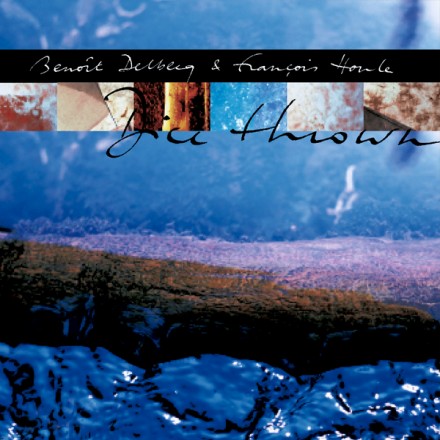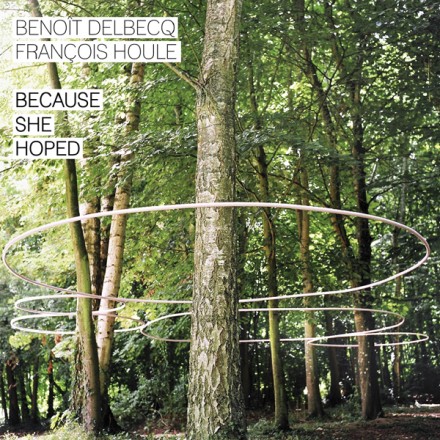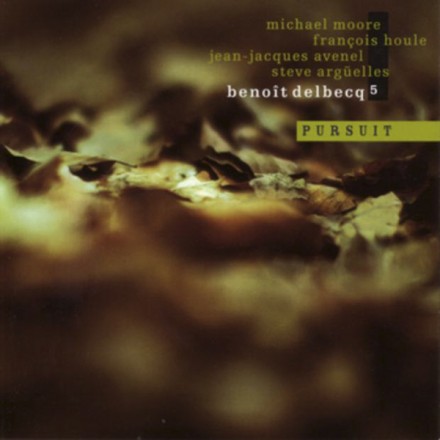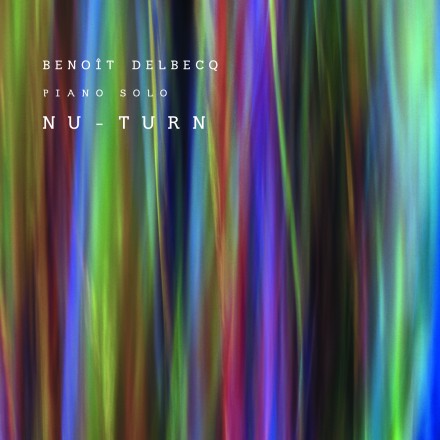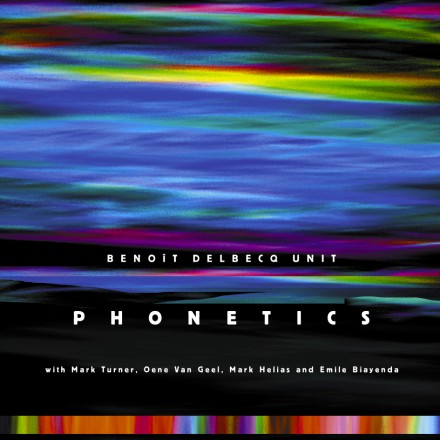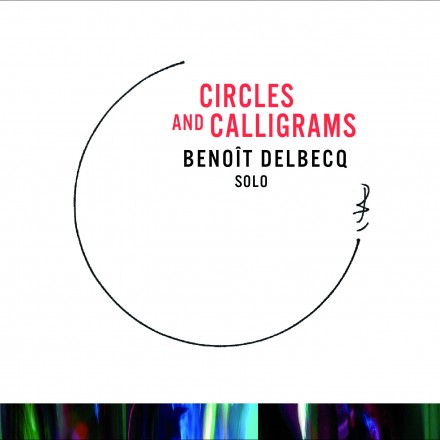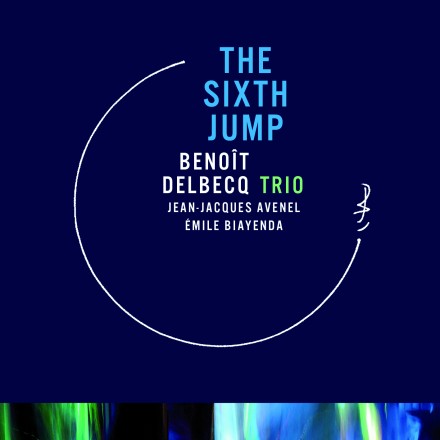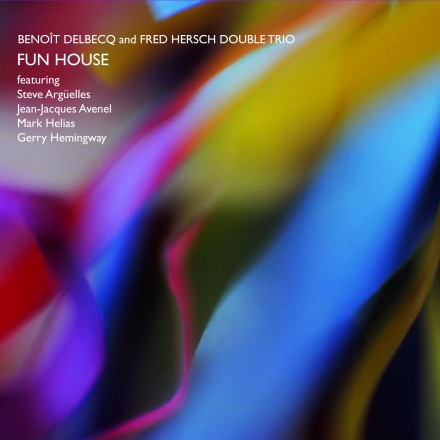Benoît Delbecq & François Houle
Dice Thrown
SGL SA1538-2“Their duets are filled with playful, coy unison lines and melodies that are as fresh and sharp as a mint…”
— Jazz Times
Building on these artists’ first duo collaboration, Nancali (1997), Dice Thrown includes pieces for piano or prepared piano and clarinets (sometimes two played simultaneously) and a solo improvisation by each musician. As the record unfolds, composition and improvisation seem to flow together into a dream-like continuum where jazz and new music meet. To reach this place, Delbecq and Houle have worked for years extending the techniques of their instruments and creating their own language of musical gestures for purposes of spontaneous musical composition. Delbecq’s contemplative piano “fabrics” draw on Cage, Ligeti, and African timbres and polyrhythms, and are characterized by unexpected juxtapositions and patternings. Houle’s approach has been inspired by Evan Parker and clarinetist William O. Smith’s multi-layered sonic explorations, and combines a thoroughgoing reinvention of the clarinet’s expressive possibilities with an exceptional melodic lyricism. The duo’s rapport results in a highly ordered yet intuitive discourse, echoes and undercurrents of other music continually opening up new directions. The nuanced 24-bit recording reveals a world of subtle resonance.
Pianist/keyboardist/composer Benoit Delbecq was born near Paris in 1966 and studied both jazz and contemporary/classical piano. He is a founding member of the Hask Collective, which helped revitalize Paris’s creative music scene in the 1990s, and leads or co-leads Delbecq 5, Ambitronix, PianoBook, Kartet, the Recyclers, and les Amants de Juliette. Delbecq has collaborated and recorded with Steve Lacy, Evan Parker, Steve and Julian Argelles, Marc Ducret, Tony Coe, Gianni Gebbia, and French pop star Katerine among others. He composes for film, dance, theater and radio, and has a collaboration using sampling technology with French poet Olivier Cadiot. He toured Central Africa in 1994 with Serge Adam, and has appeared at numerous festivals in Europe as well as Canada and Japan. His recordings are on Songlines, Naive, Plush, Deux Z, and other labels.
Born in Quebec in 1961, Vancouver-based clarinetist/composer François Houle has built a body of work that, as Art Lange has written, “hovers unselfconsciously above categories and styles.” He leads the Francois Houle 5 and other jazz/creative music groups, co-leads the world music trio Safa, is a member of Delbecq 5, and has performed and/or recorded with Marilyn Crispell, Dave Douglas, Myra Melford, Wayne Horvitz, JoÎlle Leandre, Georg Graewe, Evan Parker, and the NOW Orchestra. He has performed in ensembles under the direction of Kagel, Takemitsu, and Xenakis, is intimately involved in the development of contemporary Canadian music as a member of Standing Wave and the Vancouver New Music Ensemble, and also performs classical chamber music regularly. He has appeared at festivals across Canada, the U.S., and Europe, and his recordings are on Songlines, Between the Lines, Spool, Red Toucan, and other labels.
Choc de l’année (12 best of the year), Jazzman (France)
*** “…a chamber-like program, founded upon an organic approach, often marked by ethereal musings. They pursue quietly atmospheric soundscapes and dark, hallowed thematic forays via an abundance of delicately enacted exchanges…A strange beauty permeates throughout…” — Glenn Astarita, Allmusic.com
“Along the way there are echoes of the so-called ‘chance’ compositions of experimenters like John Cage and György Ligeti, the extended techniques of improvising saxophonists like Evan Parker and Steve Lacy and tonal rhythms that slide between impressionism and dissonance and back again. At times, the two recall the early 1960s work of clarinetist Jimmy Giuffre and pianist Paul Bley, whose music was both contemplative and thorny at the same time.” — Ken Waxman, Jazzweekly.com
“…the interaction…is many layers deep, leading to a sense of momentum and understated density…These pieces are essentially tone poems, drawing from chamber music of the modern classical tradition but introducing an interactive improvisational flow. Though both players utilize a variety of timbres and tones throughout this record, Dice Thrown retains a sense of darkness and serenity. That, combined with their continuing fascination with wave-like ripples of sound, turns the record into a sort of twilight aquatic adventure. When musicians have the insight to hold back and let silence speak as loudly as notes, they gain the ability to project emotion in subtle and unpredictable ways. And in the end, that process can only work when the artists apply as much listening as speaking, as much attention as expression. Such is the case on Dice Thrown.” — Nils Jacobson, AllAboutJazz.com
“…the compositions are highly creative improvisations which seem to live in a space neither part of the jazz nor the classical worlds…Houle explores an inspiring of new range of sounds…Delbecq first of all plays a Bosendorfer Imperial Grand – the most audiophile piano with its extra bass notes. But that’s not enough, because on some of the tracks he ‘prepares’ the piano a la John Cage – using thin wood slices and pieces of erasers. The result is a gamelan-sort of sound that points up the undeniable fact that the piano is after all a percussion instrument…The added resolving power of SACD seems to make the extended clarinet and piano sounds more palpable and understandable by the ear…” — John Sunier, Audiophile Audition
“Though each is adept at free improvisation, it’s very difficult to situate either of these players in a ‘free jazz’ tradition, unless that tradition has a lot of room for players like Jimmy Giuffre (whose interaction with Paul Bley is a key source of inspiration on this recording)…It’s a very intimate program, unapologetically lyrical and even sweet in places. Some of these pieces are compositions, some are improvisations, though unless you consult the liners you’ll probably not be able to tell since this duo excels at merging the two…Neither showy nor ecstatic, these guys nonetheless demonstrate their instrumental range continually (working in all registers, pulling off difficult turns of phrase and marshalling widespread timbral resources). Bewitching.” — Jason Bivins, Signal to Noise
“Delbecq and Houle are highly polished improvisors, responding to the unexpected as the vital current in their playing, yet they maintain extraordinary poise. French symbolist poet Stephane Mallarmé placed printed words with selfconscious precision against the silence of the blank page; this duo arrange decisive statements meticulously in uncluttered acoustic space. Occasionally Houle practices circular breathing and introduces split tones. Mostly his tone is pristine, his phrasing impeccable. Delbecq matches his expressive grace and refinement…The poise and decisiveness of the music are impressive but the life in it derives nonetheless from the pulse of the unexpected.” — Julian Cowley, The Wire
